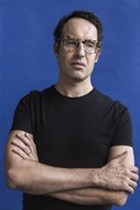How do I win a Digital Loerie?
The big agencies already know a lot of tips and tricks to win. But here is a simple (and perhaps simplistic) view on how you can tilt the odds in your favour.
The first question a lot of people ask is: Why bother? Isn't it all just self-indulgent wankery?
I must confess I held this view for many years before I was in a creative agency, and before I saw how clients and industry players use awards and award ranking tables in the selection of vendors and partners. There can be no doubt that an agency like Gloo or Ogilvy Interactive in Cape Town has successfully marshalled their victories at the Loeries and other awards to claim a pre-eminent place in the minds of potential clients - and staff.
Everyone wants to be a winner. Failing that, everyone wants to hang out with a winner.
Whilst no one award or award show can categorically confer upon an agency the mark of greatness, a pattern of success certainly does. That said, even one significant trophy can raise the profile of a smaller agency and open the floodgates to exciting, creative briefs.
So with that said, how do you get one?
1. Good work
Whilst this goes without saying it also bears a little unpacking. Great work is not, and cannot, simply be well executed work. The Digital Loeries these days are judged by people with at least as much conceptual creative and branding skills as design and technology. They are looking for big, fresh and innovative ideas - and only then for exceptional execution.
There is no magic formula for good work but it is something that is relatively easy to spot in a crowd. It makes people sit up and take notice. It is surprising and it is sufficiently unlike anything that's come before it.
Invest your time and effort in one or two good, or even great, pieces a year. That's really all you need.
2. Sell the work
Typically, a Loeries judge will see a few hundred pieces of the work in the course of their judging activities. You don't need to be a genius to figure out that the amount of attention paid to each entry during the filtering rounds is going to be short. So you need to grab their attention and sell your work.
These days a well constructed entry video is considered essential. Look at some examples from Cannes to see how the best in the world are doing it. Often the video is as amazing as the work itself.
You can't dress up garbage with a great entry. But you can mask genius by a bad one.
3. Know thy enemy
The Loeries is a competition. In the end you will be judged against others and in order to know where you rank relative to them you need to know what they are doing. We are all terrible at looking outside of our own businesses to see what the competition is up to. We get demoralised by it, or we arrogantly ignore it. But you cannot beat an enemy you do not know.
Sites like Bizcommunity.com, 10and5 (which Uno de Waal kindly operates), The Media Online, MarkLives and others carry news of the best work happening in digital. Also being one of the 0.4% to click on banners frequently exposes you directly to current campaigns for major brands.
Spending time knowing what will be in competition will help you to choose your potential award-winners wisely.
4. Follow trends
By this I don't mean be clichéd, but judges are well versed in major local and international trends. They know what's big and what's up - and they're looking for echoes of that in the work. The one great thing about being in the developing world is that we tend to follow international trends. So be well versed in what's winning overseas and try to reference that in your work and your entry.
A simple example is "responsive design" - a trend from last year. From a craft point of view highly responsive sites would have been recognised by judges as being clued into where the world is going and, from a craft perspective anyway, would have been marked up.
5. Industry participation
This may seem like a controversial point but the more you give to the industry, the more it'll give back to you. Being selected as a judge is a key part of what agencies do to help their own success. And not in a devious way, but once you understand the judging, the landscape, other agencies' work and the personalities doing the judging it is much easier to plan to win.
Judge selection is a black art and it has a lot to do with the industry profile of the people selected. Those who are out there, doing great things for digital marketing, are more likely to be chosen. It's just that simple. There are lots of ways to do this - both via the DMMA and in your private capacity.
One thing's for sure though - if all you're doing is making work and never stepping out, the likelihood of being noticed and of gaining influence is small.
































